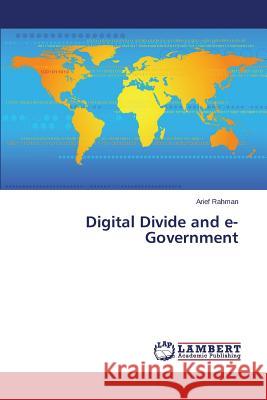Digital Divide and e-Government » książka
Digital Divide and e-Government
ISBN-13: 9783659628665 / Angielski / Miękka / 2014 / 276 str.
Citizens are substantial stakeholders in every e-government system, thus their willingness to use and ability to access the system are critical. Unequal access and information and communication technology usage, which is known as digital divide, however has been identified as one of the major obstacles to the implementation of e-government system. As digital divide inhibits citizen's acceptance to e-government, it should be overcome despite the lack of deep theoretical understanding on this issue. This book explores and in the same time provides evidence, the impact of digital divide on e-government systems success. The book is based on a research in Indonesia.
Citizens are substantial stakeholders in every e-government system, thus their willingness to use and ability to access the system are critical. Unequal access and information and communication technology usage, which is known as digital divide, however has been identified as one of the major obstacles to the implementation of e-government system. As digital divide inhibits citizens acceptance to e-government, it should be overcome despite the lack of deep theoretical understanding on this issue. This book explores and in the same time provides evidence, the impact of digital divide on e-government systems success. The book is based on a research in Indonesia.











